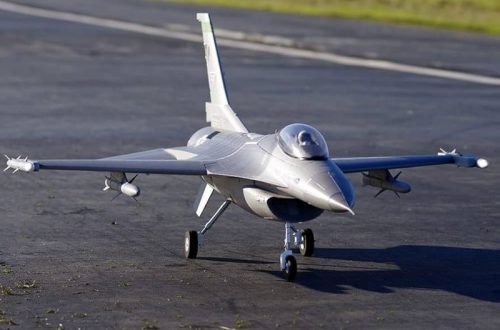In the realm of remote-controlled cars, the internal combustion engine reigns supreme for a dedicated set of enthusiasts. Gas-powered RC cars, often referred to as nitro cars due to the fuel they use, offer an unparalleled experience that electric cars simply can’t replicate. While electric RC cars boast undeniable advantages, gearheads seeking a thrilling blend of power, sound, and mechanical mastery will find themselves captivated by the world of gas-powered RC cars. This comprehensive guide delves into the unique strengths of gas-powered RC cars and explores the reasons why they continue to hold a special place in the hearts of many hobbyists.

Part 1: Unleashing the Fury: Performance Advantages of Gas-Powered RC Cars
Raw Power and Unmatched Speed:
The most exhilarating aspect of gas-powered RC cars lies in their unbridled power. Unlike their electric counterparts, which are limited by battery life and motor capabilities, gas-powered RC cars offer a seemingly endless well of power. The internal combustion engine delivers explosive acceleration and maintains impressive top speeds, allowing you to truly push the limits of your RC car’s capabilities. This translates to an unparalleled sense of exhilaration as you tear down the track or conquer challenging off-road terrain.
Torque for the Toughest Challenges:
In addition to raw power, gas-powered RC cars boast superior torque. Torque is the twisting force that propels the car forward, and it’s this force that allows gas-powered RC cars to excel in challenging situations. Whether it’s climbing steep inclines, powering through loose gravel, or navigating technical obstacles, the abundant torque of a gas engine gives you the edge you need to conquer any course. This added muscle makes gas-powered RC cars ideal for off-road enthusiasts who crave the ultimate test of skill and control.
Part 2: The Symphony of Mechanics: A Multi-Sensory Experience
The Roar of the Engine:

The appeal of gas-powered RC cars lies in the captivating and immersive experience they provide. A defining feature is the visceral and evocative sensory experience that these vehicles offer. The thunderous roar of the miniature engine as it revs to life and propels the car forward is a stimulating and exhilarating auditory sensation that sets gas-powered RC cars apart from their electric counterparts. This realistic sound not only resonates with enthusiasts but also adds a layer of authenticity and immersion to the driving experience, creating a profound sense of connection between the driver and the machine in their hands. The enthralling sound and physical feedback from the engine further heighten the excitement and engagement of operating a gas-powered RC car, delivering a unique and unforgettable driving experience that evokes the passion and thrill of traditional automobile racing on a miniature scale.
The Art of Tuning:
For hobbyists who relish the mechanical intricacies of RC cars, gas-powered models offer an unparalleled level of engagement. Unlike electric RC cars with their limited maintenance needs, gas-powered cars require regular tuning and adjustments to maintain optimal performance. This process, while demanding a steeper learning curve, rewards enthusiasts with a deeper understanding of how their car functions and the satisfaction of fine-tuning it for peak performance.
Part 3: Fueling the Passion: The Unique Character of Gas-Powered RC Cars

A Legacy of Innovation:
Gas-powered RC cars hold a significant place in the history of RC car hobbyism, representing the original form of this popular pastime. Their rich and storied history stretches back several decades, marking a pivotal era in the development of remote-controlled vehicles. The evolution of gas-powered RC cars has closely paralleled advancements in miniature internal combustion engines, showcasing the ingenuity and engineering prowess of the hobby’s pioneers.
Owning and operating a gas-powered RC car offers enthusiasts the opportunity to connect with this historical legacy of innovation. It provides a tangible link to the evolution of this fascinating hobby, allowing enthusiasts to appreciate the various milestones and technological breakthroughs that have shaped the development of RC cars over the years. Embracing a gas-powered RC car not only represents a nod to tradition but also offers an immersive experience that captures the essence of the hobby’s enduring legacy.
A Community of Gearheads:
The gas-powered RC car community fosters a unique spirit of camaraderie among enthusiasts. The shared passion for the mechanical intricacies, the challenge of tuning and maintaining these machines, and the thrill of high-performance driving creates a strong bond between gas-powered RC car aficionados. This sense of community adds another dimension to the hobby, providing opportunities to connect with like-minded individuals and share experiences.

Part 4: Beyond the Hype: Considering the Downsides of Gas-Powered RC Cars
Higher Maintenance Needs:
Gas-powered RC cars, like any internal combustion engine, demand more attentive maintenance compared to their electric counterparts. Routine tasks such as cleaning, tuning, and timely replacement of parts are vital for sustaining the optimal performance and longevity of these vehicles. While these maintenance requirements ensure that the car runs smoothly and reliably, they may present a hurdle for casual hobbyists seeking a more spontaneous and hassle-free experience with their RC cars.
The need for extensive maintenance can be a deterrent for hobbyists looking for a grab-and-go approach, as the level of commitment and effort involved in upkeep could be perceived as a barrier to entry. However, for enthusiasts who enjoy the intricacies of engine maintenance and derive satisfaction from optimizing the performance of their vehicles, gas-powered RC cars offer a rewarding and immersive experience that goes beyond just driving, providing a deeper understanding of internal combustion engines and mechanical systems.
Noise and Emissions:

The powerful engines of gas-powered RC cars produce a significant amount of noise, which can be a limiting factor depending on your location. Additionally, the fuel used in these engines emits fumes that can be bothersome and may not be permitted in certain areas. It’s crucial to consider noise restrictions and responsible operation when choosing a gas-powered RC car.
In conclusion, gas-powered RC cars offer a unique and exhilarating experience for hobbyists who crave raw power, realistic sound, and the satisfaction of mechanical mastery. While they require more maintenance and come with noise and emission limitations, the unparalleled performance, immersive experience, and connection to the legacy of RC car innovation make gas-powered RC cars a compelling choice for dedicated enthusiasts. If you’re a newcomer to the RC car world, an electric car might be a better starting point due to its ease of use and lower maintenance requirements. However, if you’re an experienced hobbyist seeking the ultimate thrill and a deeper connection to the mechanics of your RC car, then a gas-powered RC car might just be the perfect fit. So weigh the pros and cons, consider your priorities and resources, and get ready to experience the heart-pounding excitement that only a gas-powered RC car can deliver!


